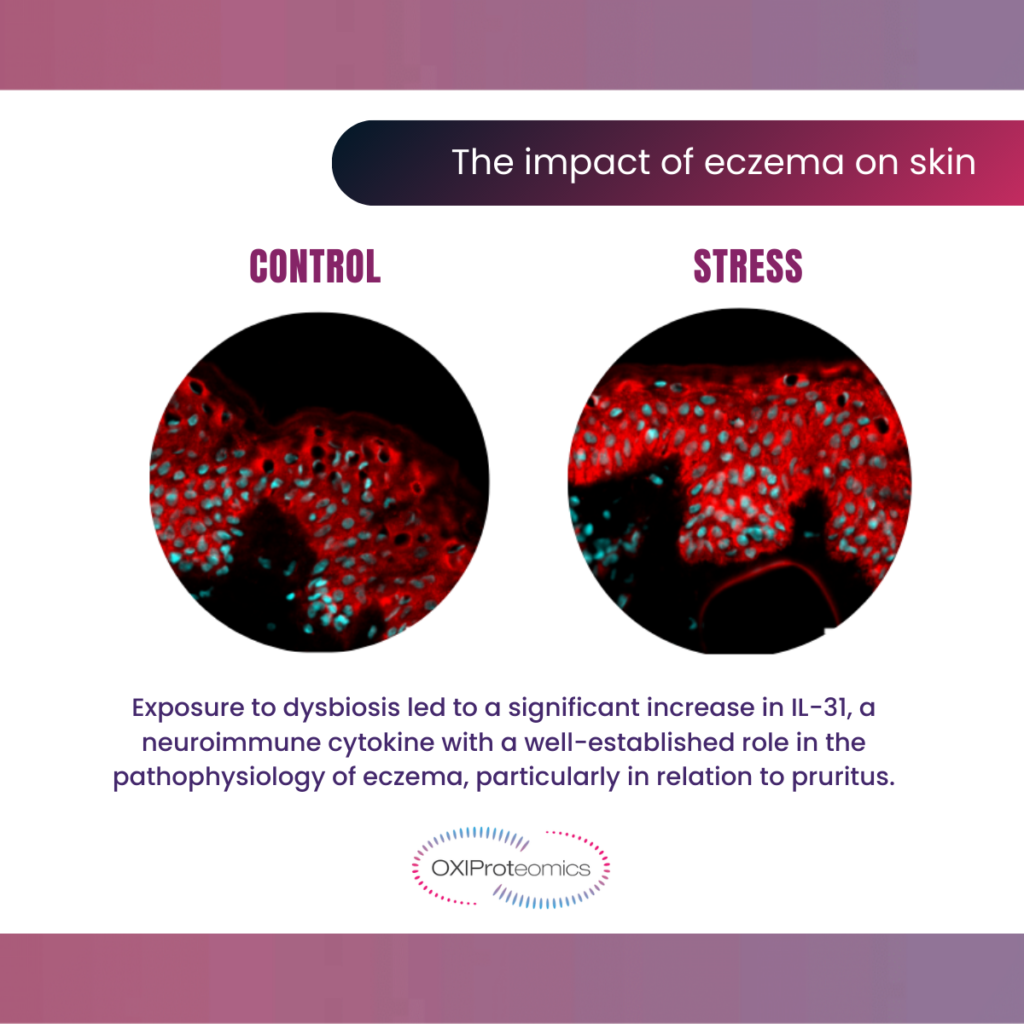
This September 14th, we marked World Eczema Day, a key moment to highlight the impact of this chronic skin condition on millions of people worldwide. It’s also an opportunity for OxiProteomics to reflect on the current understanding of eczema and the innovative solutions being developed to address it.
Understanding Eczema: Symptoms, Causes, Solutions, and new approaches
Eczema is an inflammatory skin condition affecting millions of people worldwide. It is characterized by red patches, itching, and dry skin, which can occasionally become infected.
But what causes eczema, and how can it be managed?
Eczema can be triggered by several factors. These include a genetic predisposition, allergic reactions to chemicals, cosmetics, or detergents, as well as stress or climatic changes. Additionally, individuals with naturally dry or sensitive skin are more prone to developing eczema.
Several key biomarkers are associated with eczema flare-ups:
– Th2 Cytokines: IL-4, IL-13, and IL-31 are pivotal in driving the inflammatory response seen in eczema associated with pruritus. Their activity exacerbates the skin’s reaction, leading to flare-ups.
– IL-22: This cytokine contributes to the thickening of the skin, a condition known as acanthosis, which can worsen eczema symptoms.
– IgE: Elevated IgE levels are often found in individuals with atopic eczema. This indicates an overactive immune response to environmental allergens.
– Histamine: High histamine levels in eczema patients are a major cause of itching, or pruritus, making the condition even more uncomfortable.
– Filaggrin Mutation: A mutation in the filaggrin gene—a protein essential for maintaining skin hydration—can lead to a compromised skin barrier. This increases dryness and susceptibility to bacterial infections and inflammation.
– Oxidative Stress Markers: Elevated levels of MDA (malondialdehyde) signal an imbalance between antioxidants and free radicals, contributing to skin damage in eczema.
Managing Eczema: Effective Treatments and Prevention Tips
Currently, there is no specific cure for eczema. Dermatologists typically recommend the frequent use of emollient creams to soothe and protect the skin, along with corticosteroid creams to reduce inflammation. To minimize the recurrence of eczema flare-ups, it is also advised to avoid irritants and foods that may worsen symptoms.
Unveiling the Potential of Cosmetics
Using advanced ex vivo eczema models, Oxiproteomics employs a state-of-the-art approach to test finished products and active ingredients. This innovative method evaluates how products affect eczema-affected skin and provides targeted solutions to enhance the quality of life for eczema patients.
Contact us to discover how OxiProteomics can support your skincare innovation with advanced eczema testing solutions

